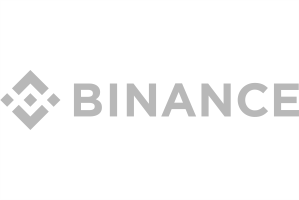The creation of an ICO and the organization of a cryptocurrency exchange in Gibraltar are carried out within the boundaries of a clear legislative framework, business is conducted in stable conditions. However, crypto exchange licensing is a time-consuming procedure. The national regulator, the GFSC financial commission, works with each applicant for several months, verifying the information in detail, requiring constant interaction and compliance with regulatory requirements.
Status of cryptoassets
There is no specialized legislation on this issue under the jurisdiction territory. The attention of local regulators is primarily directed on the broader term “Distributed Ledger Technology (DLT)”, among other things, in relation to ensuring the stability and sustainability of the results of the use of technology. In the issue of regulation, relevant government authorities rely on the nature of the assets involved and the nature of the transactions.
A special regulatory regime will apply to such transactions only if the crypto assets have signs of financial instruments. But in any case, the legislation on combating money-laundering and the financing of terrorism, as well as legislation on the protection of consumer rights, will be applied to operations with crypto assets.
Cryptocurrency regulations
Since January 2018, a radically updated system of regulation of IT technologies has been operating in the jurisdiction. The regulation came into effect that obliges all crypto exchanges, companies working with blockchain, and DLT to obtain cryptocurrency exchange licenses in Gibraltar. It is issued by the national regulator, the GFSC commission. Since 2017, she has been regulating the work of ICOs and controls them within the framework of the DLT. The introduction of new cryptoeconomic products is monitored by a special commission called Innovate and Create Team.
A cryptocurrency exchange license in Gibraltar is issued after the registration of a company (exchange) in the national regulator. The licensee need:
- provide evidence of compliance with the Gibraltar DLT principles;
- provide guarantees of disclosing information under the requirements of the norms on money-laundering and the financing of terrorism;
- demonstrate technical readiness for work – the availability of computing resources, protocols for protecting customer information, etc.
If you need a crypto license in Gibraltar for the payment system operation, then you do not need permission from the DLT. You just need regular EMI license for issuing electronic funds (such, for example, is used by PayPal). In other cases, you must be licensed in the GFSC according to the rules.
With the participation of Prifinance experts, you will go through the procedures as quickly as possible and receive the approval of the national Gibraltar regulator.
License Requirements
The use of cryptocurrency exchange license in Gibraltar requires its holder to implement several actions aimed at combating money-laundering and financing of terrorism in the framework of the following operations:
- exchange between virtual assets and fiat currencies;
- exchange between one or more forms of virtual assets;
- transfer of virtual assets;
- safekeeping and/or administration of virtual assets or instruments enabling control over virtual assets;
- participation in and provision of financial services related to an issuer’s offer and/or sale of a virtual asset.
Under the actions listed above the license holder company needs to implement the following actions:
- to develop internal control policies in relation to operations with crypto assets;
- to assess the risks associated with controlled transactions, as well as take measures to minimize such risks;
- to appoint a person responsible for compliance with relevant legislation and internal policies;
- to identify individuals, as well as registration data of legal entities that participate in transactions with crypto assets;
- to identify politically exposed persons;
- to inform customers about existing procedures for compliance, control, as well as work with personal data of customers;
- to constantly monitor all operations with crypto assets conducted by the company holding the license;
- to register and maintain records of all ongoing transactions with crypto assets;
- to report on the general procedure, as well as in cases of detection of transactions related to money laundering and the financing of terrorism;
- to implement continuous internal monitoring and audit of transactions with crypto assets;
- to educate, check the knowledge, and monitor employees responsible for compliance with the rules on money laundering and the financing of terrorism.
This is a list of standard actions, but the specific plan is always developed by the conditions of each particular case. This aspect follows the risks associated with customers, products, jurisdictions, interfaces for conducting operations. Prifinance lawyers will be happy to consult on this important issue in more depth, as well as develop all the necessary policies and measures to ensure that the future crypto company meets the requirements of relevant legislation.
Full range Prifinance services
Prifinance experts will provide organizational and legal assistance in matters of registering a company, preparing a package of documents for сryptocurrency exchange license, opening accounts. We will choose the optimal form, jurisdiction, corporate, and tax model, check the documents, and help you start a promising digital business without violating the law.








